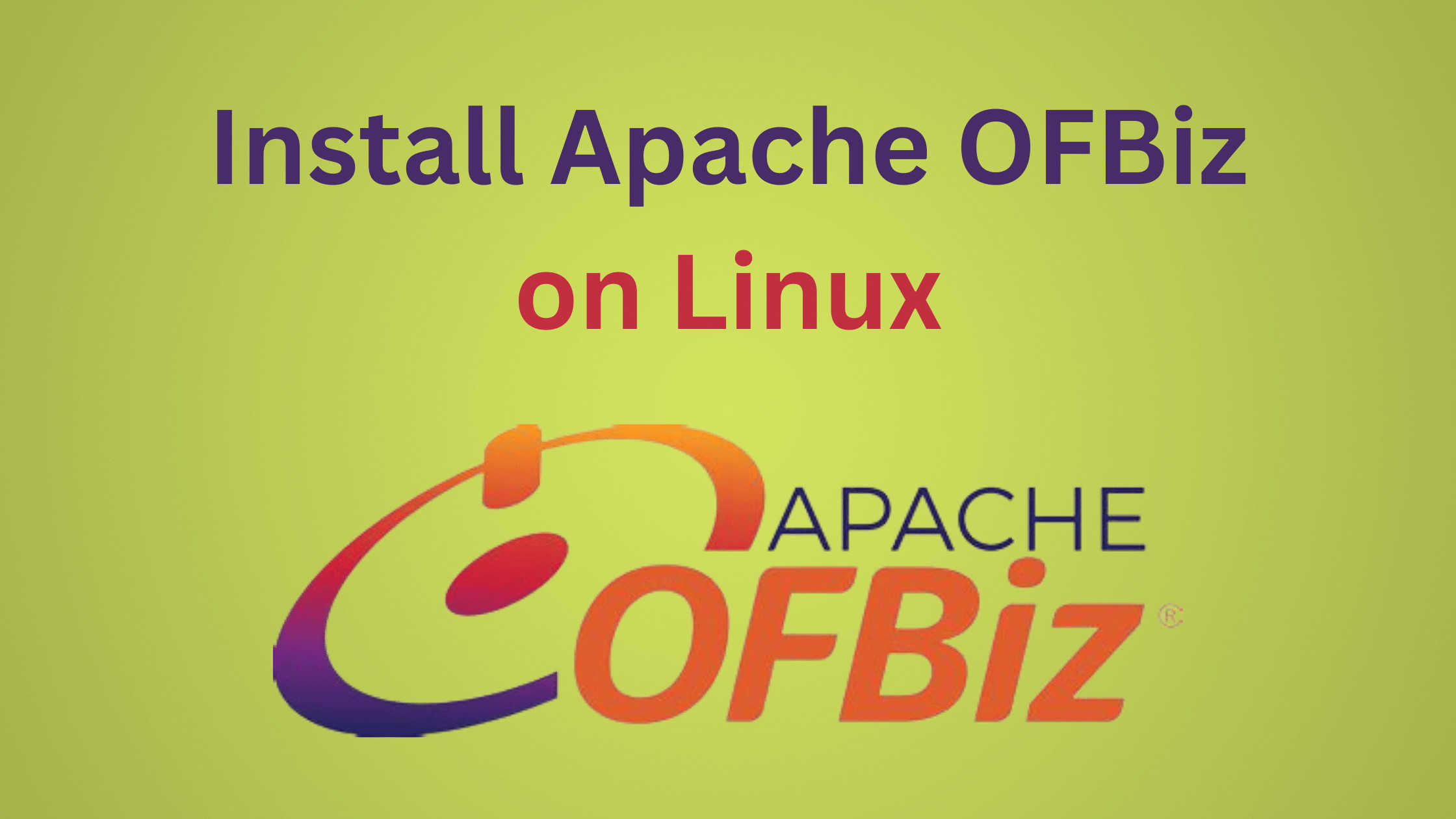Table of Contents
Step-by-Step Guide to Install Apache OFBiz on Linux
Apache OFBiz is a feature-rich open-source enterprise resource planning (ERP) system. It provides a suite of business applications out of the box to manage tasks like accounting, inventory control, order fulfillment, warehouse management, CRM, e-commerce, and more within one unified system.
OFBiz is written in Java and can be deployed on-premises or in the cloud. It supports various databases like MySQL, MariaDB, PostgreSQL, Oracle, MS SQL Server, and H2.
In this comprehensive tutorial, we will go through installing the latest version of Apache OFBiz 17.12.06 from scratch on an Ubuntu 20.04 Linux server.
We will set up all the prerequisites like Java and MySQL servers. Then download, configure and launch OFBiz along with setting up the database. Finally, we will log into the application using the default credentials and you will have OFBiz ready for testing out its various modules.
So let’s get started with installing this feature-rich open-source ERP on Linux.
Prerequisites
The installation has two key prerequisites – Java Development Kit (JDK) 8+ and Git. (We will use OpenJDK 11 in this guide.)
First, verify if Java is already installed:
java -versionIf Java is missing or lower than 8, refer to these tutorials to install Java 8 on Ubuntu/Debian/Mint or RHEL/CentOS systems.
Next, install Git if it’s not present:
sudo apt install gitNow we are ready to proceed with the the Apache Open For Business Project installation.
Step 1 – Download Apache OFBiz
We will install Apache OFBiz 18.12.11, the latest stable version at the time of writing. Download and extract the release archive using wget and unzip:
wget https://dlcdn.apache.org/ofbiz/apache-ofbiz-18.12.11.zip
unzip apache-ofbiz-18.12.11.zip
mv apache-ofbiz-18.12.11 /opt/ofbiz
cd /opt/ofbizThis will place the extracted OFBiz directory at /opt/ofbiz.
Step 2 – Initialize Gradle and Load Data
OFBiz uses the Gradle build system. Navigate to the installation directory and initialize the Gradle wrapper:
sh gradle/init-gradle-wrapper.shThis downloads the gradle-wrapper.jar file into gradle/wrapper.
Now clean the existing data and load fresh OFBiz datasets:
./gradlew cleanAll loadAllThis will take a few minutes to complete. Wait until it gets completed.
Step 4 – Start Apache OFBiz
With the configuration complete, start the OFBiz server:
./gradlew ofbizWait until the console displays Started in X seconds. indicating a successful start.
Step 5 – Access Apache OFBiz
You can now access the OFBiz interface at:
https://your_server_ip:8443/myportal/control/mainLog in with username as admin and password as ofbiz.
That completes the installation! You now have a working instance of Apache OFBiz on Linux.
Bottom Line
In this detailed guide, you successfully installed the latest Apache OFBiz 18.12.05 from scratch on an Ubuntu 20.04 Linux system.
We started by verifying the installation prerequisites – Java 8+ and Git. Then downloaded the OFBiz archive, extracted it and initialized the Gradle build system.
Next, we loaded the default OFBiz data and seeded the demo data for testing purposes. Finally, the application server was started and accessed through the browser at port 8443.
You now have a working OFBiz instance with various enterprise-level applications ready to meet business needs like:
Accounting: Financial/cost accounting, invoicing, payment processing, taxation and more.
Inventory Management: Warehouse, stock control, product catalog and inventory accounting.
Order Management: Shopfront, shopping cart, order creation, processing, fulfillment and tracking.
CRM: Accounts, contacts, leads, opportunities, cases, activities, commissions and associate portals.
HR Management: Organizational model, positions, employees, hiring, attendance/timesheets, payroll, benefits and retirement.
Manufacturing: Bills of materials, work orders, workflows, manufacturing runs, quality control and production planning.
Additionally, OFBiz offers an extensible framework to build custom modules, integrate with external systems and customize business processes to your exact specifications.
So go ahead and explore the various pre-built applications. Or start developing tailored solutions leveraging the flexible architecture of this powerful open source ERP suite.
The full documentation is available at OFBiz Wiki to help you on your journey.
Let us know in the comments if you have any issues getting Apache OFBiz running on your system.
We hope this post helps learning how to install Apache OFBiz on a Linux machine. Thanks for reading this tutorial post. Visit our website thesecmaster.com and social media page on Facebook, LinkedIn, Twitter, Telegram, Tumblr, Medium & Instagram, and subscribe to receive updates like this.
You may also like these articles:
Arun KL
Arun KL is a cybersecurity professional with 15+ years of experience in IT infrastructure, cloud security, vulnerability management, Penetration Testing, security operations, and incident response. He is adept at designing and implementing robust security solutions to safeguard systems and data. Arun holds multiple industry certifications including CCNA, CCNA Security, RHCE, CEH, and AWS Security.
